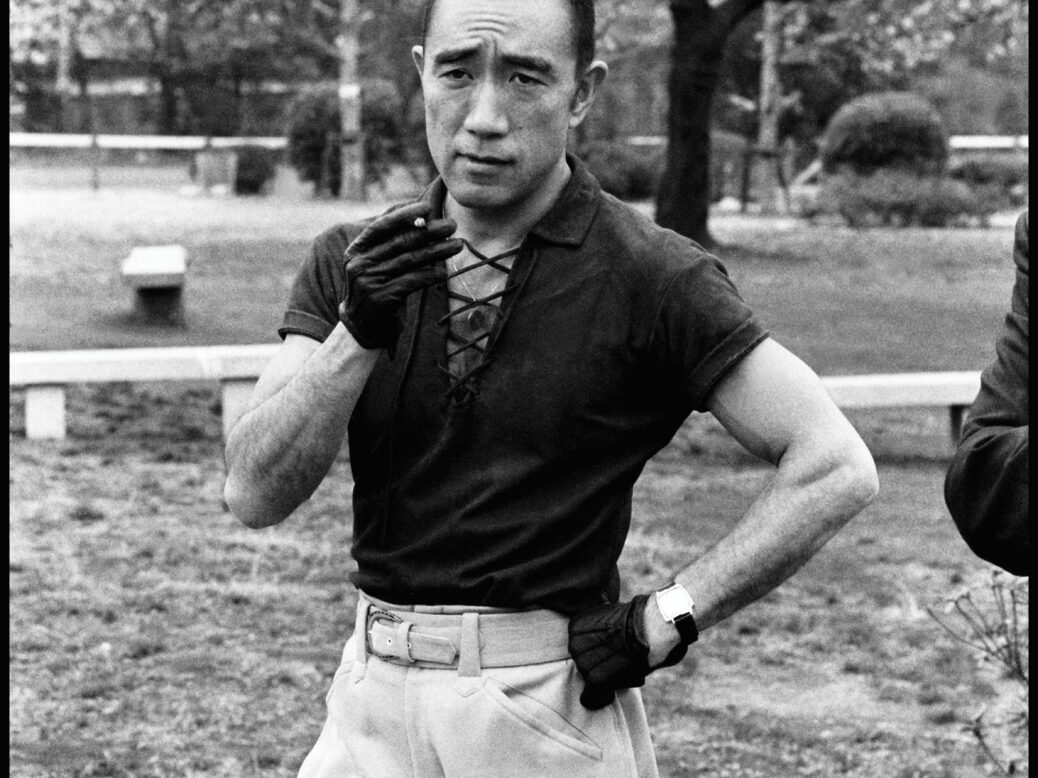He committed suicide because Japan was not ruled according to tradition: Who is Yukio Mishima?
Kimitake Hiraoka aka Yukio Mishima. Japanese novelist and playwright. He is also the founding leader of a paramilitary organization that advocates far-right ideology called Tatenokai (Shield Society).

On November 25, 1970, he was the leader of those who attacked the Japanese Defense Forces with four members of the organization. He ended his life by suicide.
Mishima was an opponent of the destruction of Japan's traditional values, as well as a supporter of the samurai mentality. He was only 45 years old when he committed suicide, and no seppuku (a Japanese form of suicide) had been committed in Japan since the end of World War II.
Kimitake Hiraoka (14 January 1925 – 25 November 1970), also known as Yukio Mishima was a Japanese author, poet, playwright, actor, model, Shintoist, nationalist, and founder of the Tatenokai, an unarmed civilian militia. Mishima is considered one of the most important writers of the 20th century. He was considered for the Nobel Prize in Literature in 1968, but the award went to his countryman and benefactor Yasunari Kawabata.
On November 25, Mishima and his four Tatenokai members visited the Japanese Armed Forces' camp in Tokyo, took the commander of the time hostage, and after reading the text explaining that Japan should be governed according to tradition, Mishima ended his life. Tatenokai member Hiroyasu Koga cut off Yukio Mishima's head with a sword to complete the suicide.
Mishima had actually planned and implemented this sensational event a long time ago. Taking into account the financial difficulties that Tatenokai members will experience during the court process, he left a large amount of cash to the organization he founded.
Yukio spent his childhood years apart from his parents with his grandmother. Raised in the samurai tradition by his grandmother, Mishima's grandfather was also one of the prominent bureaucrats of the colonial Empire of the time.
In her early childhood, being allowed by her grandmother to play only with girls and the kind of toys that girls would play with would have affected her later development and writing in a way.
Although he is best known for his first novel, Tozuka (Thieves), published in 1948, it was his autobiographical work called Kamen no Kokuhaku (Confessions of a Mask) that would make him famous and become Japan's most famous writer during his lifetime. This work, published at the age of 23, attracted attention with the treatment of suicidal ideation, a view far from the modern world, and incest-homosexual themes.
In addition to many novels, works adapted to serials, modern theater plays, and literary essays, he also produced works on traditional Japanese theater. These works nominated him for the Nobel Prize in Literature from 1963-1968.
Summary
Yukio Mishima was born in Tokyo in 1925. Mishima spent her childhood with her grandmother, Natsu. His grandmother did not allow Mishima to play with his other boys, allowing him to play with his daughters cousins and dolls.
His grandmother was from a noble family, so she raised her grandchildren in her aristocratic traditions. Mishima's grandfather was a bureaucrat. Yukio Mishima was only 12 years old when he went to his family. In his biographical works, where he wrote about his close relationship with his mother, some authors called it a close relationship to incest. His father was a military man who enjoyed this discipline.
When writing for Mishima and discussions with university students were not enough, he formed a community in 1968. He named this community Tate no Kai. He undertook the physical and philosophical education of about 100 young people who joined the group. He conducted his training in a camp given by the army. The activist writer staged his predetermined grand finale on November 25, 1979.
He made an appointment with the garrison general to present a 17th-century sword as a gift. He went on a date with four band members. When they enter the room, they tie the general to the chair and lock the door. Mishima asks the soldiers to gather and reads the manifesto he prepared from the balcony.
He goes in and performs the seppuku ritual. He gets down on his knees and slits his stomach with his short sword. As a requirement of the ritual, his aide hits Mishima's neck with the sword in his hand. Despite trying 3 times, his head is still in place. Another takes the sword and, in one fell swoop, cuts its neck from its torso. The aide applies it to himself in the same way. There are two severed heads on the carpet.
